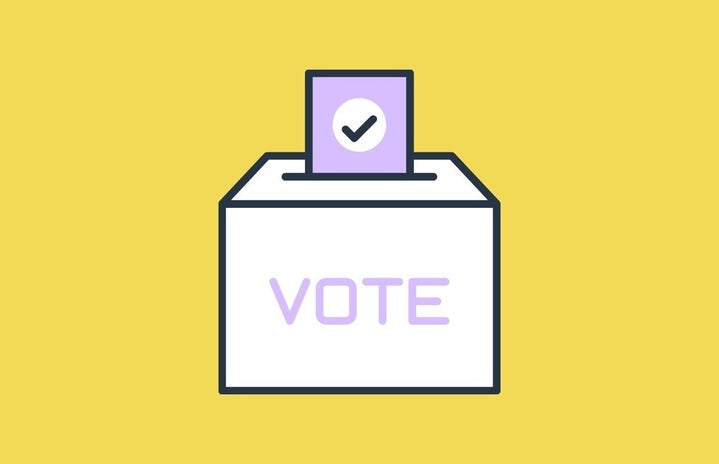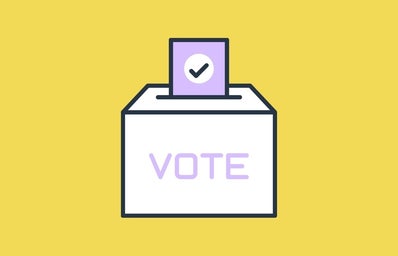Last year I was having a conversation with my friend after our Pharmacology class. My friend (let’s call her Margaret) told me that she was running for a position on our Health Science Student Association (HSSA) and asked me to vote for her. Of course I said yes, and didn’t think much of it. She asked me, “You know how to vote in the election, right?” I said, “Yeah, I’ve voted in these student elections before.” She seemed shocked that I had, as she said she had never voted in student elections before, despite running in one that year. Now it was my turn to be shocked.
The next day, in another class, I was checking my uOttawa email and saw an email about the HSSA elections. I casually brought up voting in them to another friend I was sitting with (let’s call her Nicki). I mentioned how my friend Margaret was running for a position and that we should vote for her. Nicki said she had also never voted in the student elections. It had never occurred to me to not vote in elections, be it student or Canadian governmental elections. I have voted in every election ever that I have been eligible to vote in. Voting was just another responsibility I had, like any other day. I thought to myself, if you have the option to be heard, why not?
With a Canadian federal election looming on the horizon, tabled non-confidence votes and talks of more, it’s natural to be checked into the world of elections and civic duty. You hear about things on the news or through social media. But what about academic duty when it comes to student elections? It’s also easy to get distracted with big ideas and big election promises in federal campaigns, but it’s important not to lose sight of the significance of student government elections as a university student.
Voting is very important especially in student elections. The most common issues at stake are fees paid in tuition, and who you choose represents you in student associations and student unions. Different candidates advocate for different things, so you should be aware of who and what you’re voting for. Student elections are notorious for having low voter turnout, and uOttawa is no different: The February 2024 University of Ottawa Student’s Union (UOSU) general election had a voter turnout of 6.74%. This was lower than the voter turnout of the October 2023 UOSU by-election’s of 7.7%. Surprisingly, the October 2023 by-election had the highest voter turnout in UOSU’s albeit brief history.
My friends made clear that they vote in federal elections, though less frequently in provincial and municipal elections. Although a whole other can of worms, I set out to find out why they don’t vote in student elections.
1. Students are too busy
Both Nicki and Margaret said they are just too busy or don’t read all of their emails. This is a fair point as university is very hectic and strenuous. The average student has trouble balancing classes, readings, homework assignments, clubs, work, chores, and a social life.
2. students think voting is Useless
Another point Nicki and Margaret both pointed out is they think their vote will not change anything. They hardly see any changes in their student life with the change of elected candidates, so why would voting make any difference?
3. Students don’t Have the patience to read boring emails
Although said frankly, it may be the hilarious, yet ugly, truth. It takes quite a lot more patience and time to read a boring email over an exciting one. Nobody wants to spend time doing something unenjoyable, right?
So, what can change, and what can you do about this?
Regarding the issue of being too busy, it is certainly understandable. However, not voting can be a bit problematic. Issues like voting whether or not to fund things like the university’s radio station (CHUO FM) could be at risk. In the October 2023 by-election referendum, students voted not to fund CHUO through a levy of which amounted to about $5 per student. What’s funny about this is 2,999 out of 46, 700 students decided the outcome of the referendum. If more students had voted, maybe the results would have been different.
I realize there will always be people who opt out of voting for a variety of reasons. However, many people are also open to hearing your thoughts about voting if you offer a bit of support. I like to do this by asking my friends who they’re voting for in student elections, or what they think of the UOSU referendums. If they express confusion, I gently say I’m voting for this. With the example of CHUO and other referendums on funding, people might be more motivated to vote knowing their money, or their student programs, may be on the line.
Another way to make sure you vote is voting together. In government elections, my family always makes a point of walking to the polls and casting our early votes together. Maybe that’s part of the reason that it never occurred to me not to vote; my family made voting an event. When I receive a student election form, I sometimes will wait until I’m with my friends to mention it, and then we all take 5 minutes researching the candidates and submitting our votes in. It’s a fun little activity to do between study breaks. However, if I’m not sure I am seeing my friends on a given day and don’t want to forget about voting, I’ll vote as soon as I see the email. It gives me the satisfaction of checking another thing off my to-do list.
As for the boring point, here’s the bottom line: Although voting may not be the most fun, it’s a fact of life in a democratic country. People have to do many boring things in life because they have a responsibility. It’s boring to grocery shop, but you have a responsibility to feed yourself. It may be boring to vote, but you have a responsibility as a citizen in a democratic country to vote for a government that represents the views of the population. It’s the same as in the student body. The university and the student union deserve student governments, student associations, students unions, and referendum results that are representative of the student body. The university should make tuition fee decisions that are representative of the whole student body. It’s a good thing voting doesn’t take nearly as long as grocery shopping.



